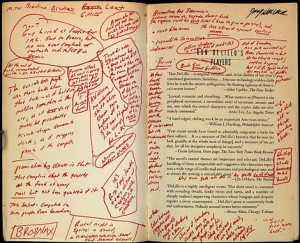Treat books as conversations
“John Adams’ favorite form of conversation was an argument. He thought that arguments were the only form of conversation that really forced you into truth”
– Joseph Ellis
Over time we consistently find inconsistencies of advice. One minute we need a high-fat diet, the next it causes cancer. One decade we are advised to give out esteem trophies to every child who makes an appearance, the next decade we discover it curbs their appetite for hard work and continuous improvement. Most recently I engaged one top creative thinker who advised that team leaders should arrive at meetings with strict and clear agendas, ideally have only one clear decision to make as a team, and limit the meetings to 45 minutes. Five years ago I had an interaction with another business best-selling guru who advised team members should set the agenda during the first few minutes of the meeting, and the conversation should primarily be about information-sharing, which would naturally encourage team members to collaborate independently.
I’ve tried both meeting tactics and I’ve found that while neither are inherently wrong, I have developed my own preferences. Contrary messages are everywhere. I don’t believe in definitive models, but I do believe there are certain truths and value to be found in most ideas and conversations. If I read anything called “The Nine Immutable Truths of Success” or the “The Six Definitive Steps to Greatness” I react with deep skepticism, yet probably read it anyway because I’m curious and believe there are threads of value within.
Remain constantly inquisitive, and find the bits and pieces that resonate with you and put them to work. Many ideas and advice from credible sources are worth your energy and adoption to the point of realizing value. And then reach again to find, apply and reinvent again.
“A foolish consistency is the hobgoblin of little minds…Speak what you think now in hard words, and to-morrow speak what to-morrow thinks in hard words again, though it contradict every thing you said to-day.” – Ralph Waldo Emerson




